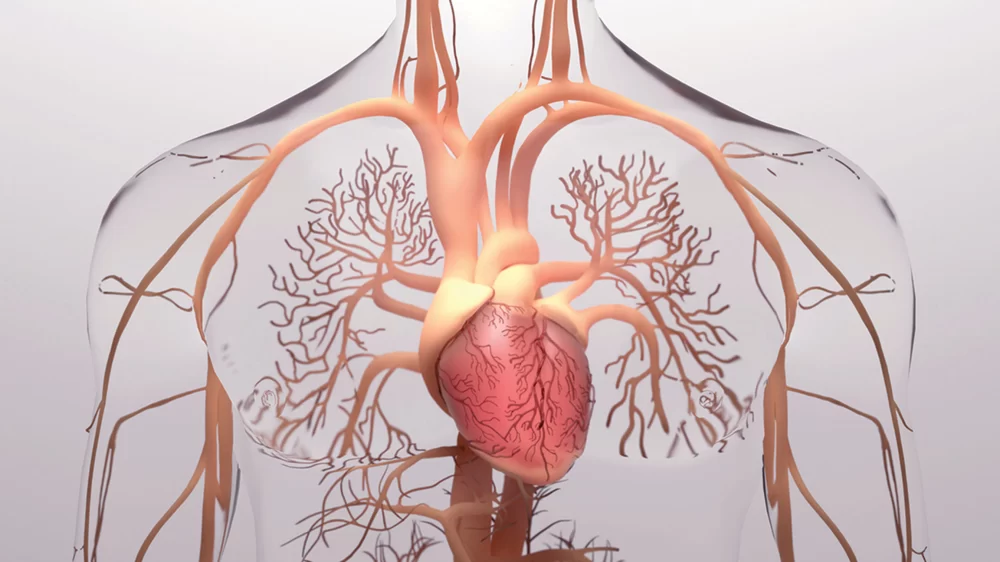- Understanding the Connection Between Stress and Heart Disease
- How Stress Affects Your Heart Health
- Scientific Evidence Linking Stress and Heart Disease
- Real-Life Case Study: Stress and Heart Disease
- How to Manage Stress to Reduce Heart Disease Risk
Understanding the Connection Between Stress and Heart Disease
Stress is something everyone experiences from time to time. Whether it's due to work pressures, family responsibilities, or personal challenges, stress is a natural part of life. However, chronic stress can have a profound impact on your overall health, particularly your heart. The relationship between stress and heart disease is more than just a theory; it’s backed by substantial research showing how prolonged stress can increase the risk of heart disease.
When you’re under stress, your body releases hormones like adrenaline and cortisol, which prepare you for a “fight-or-flight” response. While this is helpful in short bursts, long-term activation of this response can have detrimental effects on your heart. High levels of cortisol, in particular, can lead to increased blood pressure, inflammation, and damage to blood vessels, all of which contribute to the development of cardiovascular problems.

How Stress Affects Your Heart Health
Stress can affect your heart in various ways, both directly and indirectly. Some of the key mechanisms through which stress impacts heart health include:
- Increased Blood Pressure: Chronic stress can cause an increase in blood pressure. Elevated blood pressure is a major risk factor for heart disease, as it puts additional strain on the heart and blood vessels over time.
- Inflammation: Long-term stress can lead to inflammation throughout the body, including the arteries. This inflammation can cause the buildup of plaque in the arteries, a condition known as atherosclerosis, which narrows and hardens the arteries, increasing the risk of heart attacks and strokes.
- Unhealthy Coping Mechanisms: People under stress may turn to unhealthy coping mechanisms such as smoking, drinking alcohol, or overeating, all of which can contribute to poor heart health.
- Disrupted Sleep: Stress often leads to disrupted sleep, and insufficient sleep can negatively affect heart health. Poor sleep increases the risk of obesity, high blood pressure, and other heart disease risk factors.
In addition to these direct effects, stress can also contribute to unhealthy lifestyle choices, such as poor diet, lack of physical activity, and neglecting regular medical check-ups, all of which compound the risk of developing heart disease.
Atlanta Heart Specialists
atlanta heart specialists
4375 Johns Creek Pkwy #350, Suwanee, GA 30024, USA

Scientific Evidence Linking Stress and Heart Disease
Numerous studies have confirmed the link between stress and heart disease. One well-known study, the Whitehall II study, followed thousands of British civil servants over several years and found that people with high levels of job-related stress had a significantly higher risk of developing heart disease. Other research has shown that individuals who experience chronic stress are more likely to develop conditions like hypertension and diabetes, both of which increase the risk of heart disease.
For instance, a 2012 study published in the journal *Circulation* found that individuals who experienced chronic stress were at a higher risk of developing coronary artery disease (CAD), a condition where the blood vessels supplying the heart become narrowed or blocked. Additionally, stress has been found to exacerbate existing heart conditions, making it harder for individuals to recover from heart-related events such as heart attacks.
These findings underscore the importance of managing stress as part of a comprehensive approach to heart disease prevention. Stress management isn’t just about feeling better mentally—it’s also about improving your physical health and reducing your risk of heart disease.
Real-Life Case Study: Stress and Heart Disease
Consider the case of John, a 55-year-old man who had been under significant stress due to work-related pressures and family concerns. Over the years, he developed high blood pressure and began to notice symptoms like chest tightness and fatigue. Despite his family history of heart disease, he didn’t take the symptoms seriously, attributing them to stress.
One day, John had a heart attack, which served as a wake-up call. After recovering, he worked closely with his doctors and began addressing the root causes of his stress. He adopted a stress-reduction routine that included exercise, meditation, and therapy, and his health gradually improved. John’s story is a powerful reminder of how unchecked stress can lead to serious heart problems, and how managing stress effectively can have a significant impact on heart health.
How to Manage Stress to Reduce Heart Disease Risk
Given the clear link between stress and heart disease, it’s crucial to incorporate stress management techniques into your daily routine. Here are some practical strategies to help you reduce stress and protect your heart:
- Exercise Regularly: Physical activity is one of the most effective ways to reduce stress. Exercise helps to release endorphins, which are natural mood elevators, and it also lowers cortisol levels, promoting a sense of well-being.
- Practice Mindfulness: Mindfulness practices such as meditation, deep breathing, and yoga can help calm the mind and reduce stress. These techniques have been shown to lower blood pressure and improve overall heart health.
- Get Enough Sleep: Aim for 7-9 hours of quality sleep each night. Sleep is essential for reducing stress and allowing your body to repair and rejuvenate.
- Seek Social Support: Spending time with loved ones and talking to friends or a therapist can help you manage stress. Social support is crucial for mental health and can buffer the effects of stress on your body.
- Adopt a Healthy Diet: Eating a balanced diet rich in fruits, vegetables, whole grains, and lean proteins can help reduce the physical effects of stress on your body, including inflammation and high blood pressure.
Managing stress is a critical component of heart disease prevention. By incorporating these techniques into your lifestyle, you can significantly reduce your risk of heart disease while improving your overall well-being.
If you’re looking for resources to support your journey toward better heart health, HeartCare Hub offers a variety of tools and products to help you manage stress and maintain a healthy heart. From heart health monitors to wellness programs, we provide everything you need to stay on track with your heart disease prevention goals.






















Deborah Heart and Lung Center
deborah heart and lung center
200 Trenton Rd, Browns Mills, NJ 08015, USA